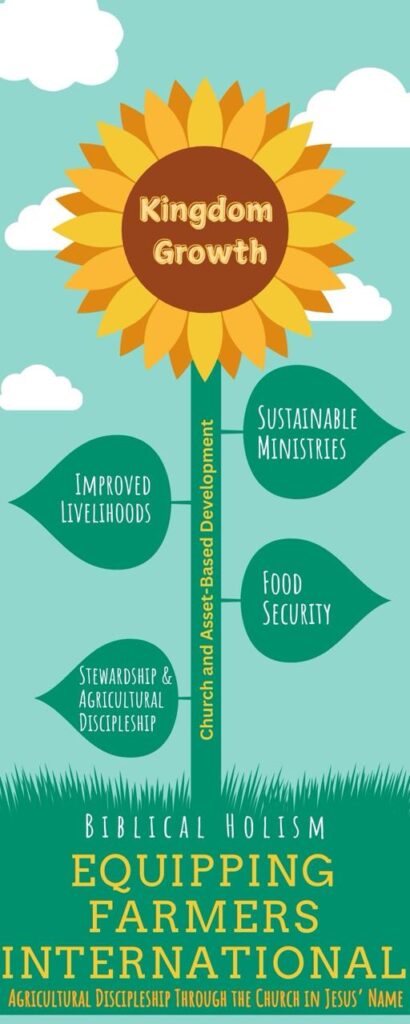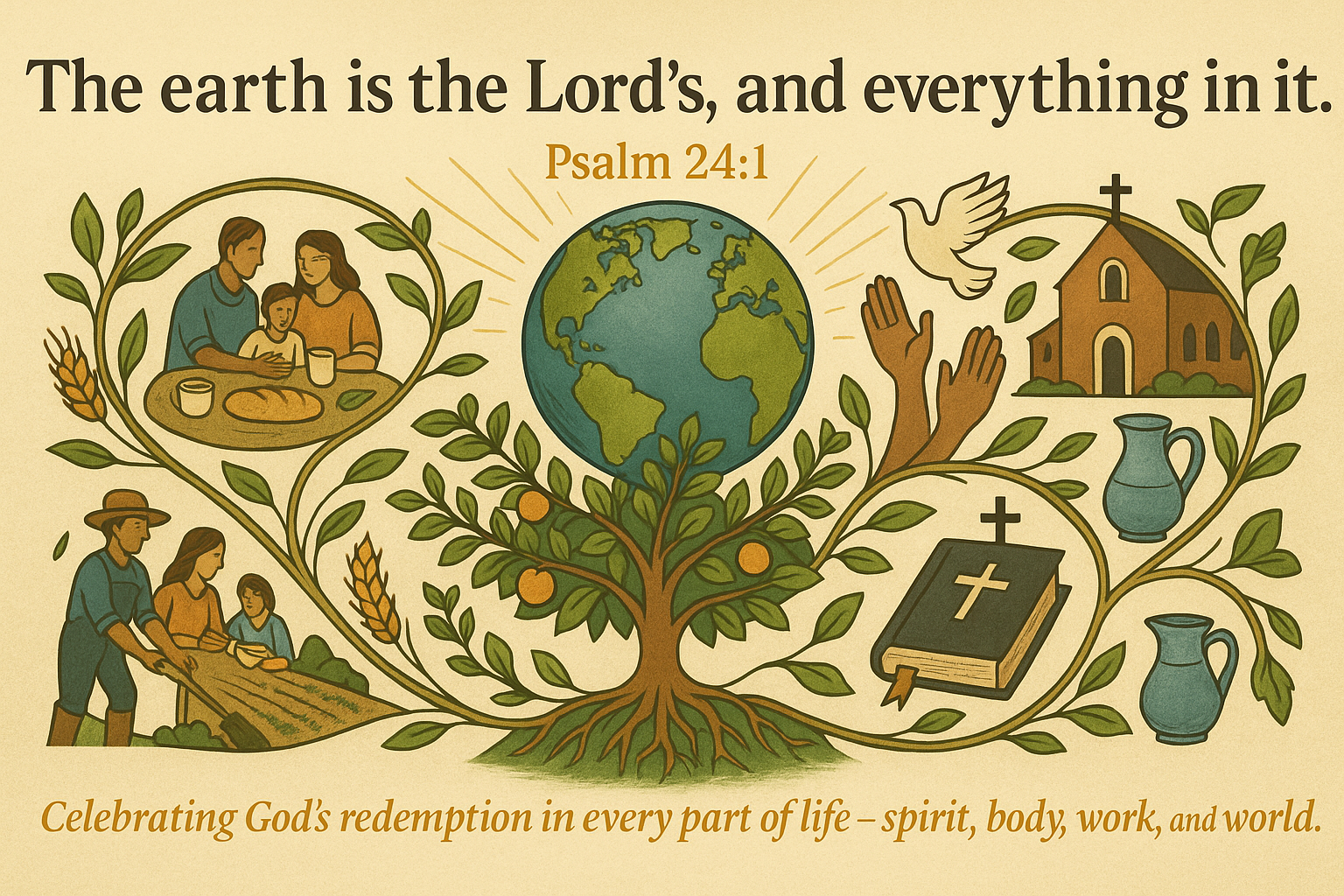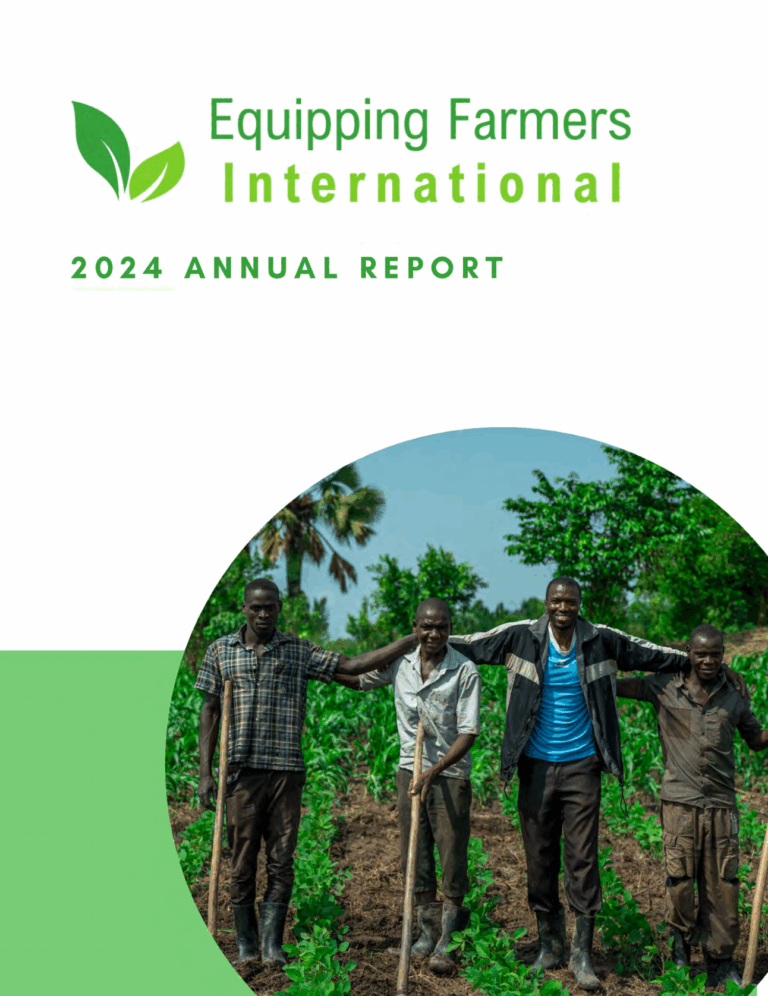“The earth is the Lord’s and everything in it.” –Psalm 24:1
It was the only time a professor asked me into his office to discuss my paper. I had unknowingly used the words of Jesus to argue for Dualism. This was thirty years ago, so I don’t remember the exact passage. I do remember his remarks were the first I had heard that the physical world has significance, primarily using the resurrection of Jesus as proof. This began a life-changing journey for me.
According to Google AI, “from a Christian perspective, dualism often refers to the separation of the sacred and secular, the spiritual and physical, or the heavenly and earthly realms.”
Dualism has a strong influence on Christianity around the world. We like to think that this is a problem somewhere else, but many Christians in the West have a surprisingly dualistic worldview. I’ve introduced people to EFI quite a bit since June of 2024. If EFI is not readily embraced, the most common reaction to the EFI story is confusion about what we actually do. My audience isn’t sure which aspect of EFI to latch on to.
Is EFI feeding people?
Is EFI making disciples?
Are you helping plant churches?
Is EFI doing economic development?
Which is it?
It’s as if EFI has to choose. This could be evidence of dualism, or that I am a poor communicator. More than likely we have a dual problem (pun intended).
In contrast to dualism, Google AI provides this workable definition of Biblical holism as “a way of viewing the world and…life through a lens of interconnectedness, where every aspect is considered in relation to the whole, as God intended. It emphasizes…that salvation and restoration through Christ impacts every dimension of life.”
One of the most important impacts of the Protestant Reformation was the restoration of a Biblical view of the relationship between the physical and material world. Martin Luther famously said, “If I knew the world would end tomorrow, I would still plant an apple tree today…”

This Biblical perspective of holism is powerful for small farmers. Biblical holism simply means a Biblically informed worldview. The “holism” addition is redundant. Like so much in God’s design, Biblical holism can be hard to define. The Word of God is a narrative because God’s world is too robust for a black-and-white answer. For example, defining a mature Christian is difficult, but you can point to one; you can observe one. This is why it’s so important to tell stories and testimonies in our churches and why I will conclude this blog with an EFI narrative of biblical holism.
Tears were flowing with a mixture of joy and repentance. EFI’s trainer was surprised by how emotional the nutrition portion of the training had become. The church that was being trained was living disconnected lives on so many levels. They went to church on Sunday, but the Bible seemingly had little to say about their work or culture. After all, those are earthly. Life has lesser meaning this side of the Jordan.
This church realized during the nutrition lesson that many of their traditional foods passed down for generations were extremely nutritious. They were struggling with food insecurity because they had replaced their traditional foods with less nutritious options out of a sense of inferiority as people living in the village. Their dualist worldview had manifested into an internalized shame about their traditional foods. This realization broke the dam. The root of their problems wasn’t entirely food-related. They were not seeing themselves and the world the way God does. The earth isn’t inherently bad–God will remake it. Farming isn’t intrinsically cursed–God was the first farmer, and He is redeeming all things.
These church members are no longer struggling with food insecurity. They can collectively meet the food needs of others. New Christians are joining the fold because the members are less lukewarm during the week. Their water table is increasing, making them better able to last through a drought. Their soil is healing, creating a snowball effect of increased yield. They are beyond subsistence, spiritually and physically, as a community of believers. They are less vulnerable to oppressors. They are sending evangelists into distant villages.
This would not be the epiphany it was without the Biblical holism that saturates EFI’s training. Biblical holism is not a disconnected topic we cover. If it were, all we would do is reinforce dualism. The earth is the Lord’s and we reside on it as foreigners and stewards because it’s His, not ours. (Genesis 1:29-30, Leviticus 25:23) Farming and Theology don’t conflict. It’s all the Lord’s!
Christians have the deepest kind of dignity a human can experience, whether we live in it or not. We can live our true purpose because we are reconciled to God (2 Corinthians 5). We enjoy the privilege of participating with God in administering the fullness of His Kingdom mission.
Christian farmers, no matter how small, must see themselves in the light of Biblical holism. They are too valuable not to.





